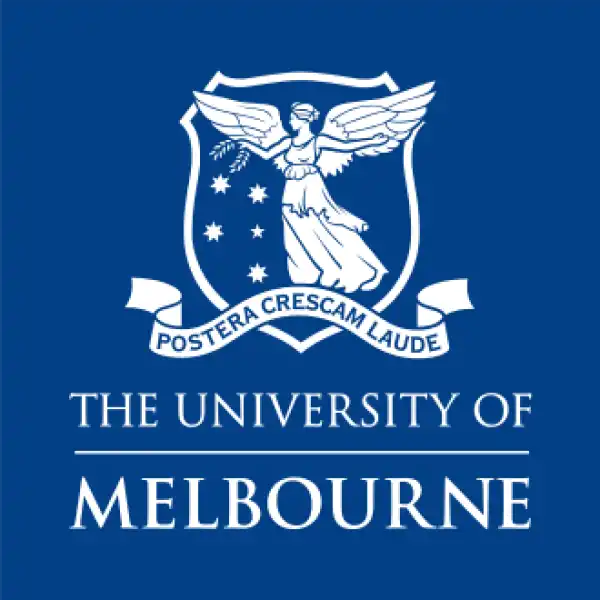Course and Visa application help by Expert Agents!
The form is a comprehensive tool to help us understand your academic profile and preferences, which assists us in offering personalized course selection and visa application support.
Faculty:
Level:
Broad Field:
01 - Natural and Physical Sciences
Narrow Field :
0107 - Earth Sciences
Detailed Field:
010703 - Geology
Foundation Studies:
No
Work Component:
No
Course Language:
English
Duration (Weeks):
104 weeks
Tuition Fees Range:
117,600 AUD (Non Tuition Fee: 150 AUD)
Tuition Fees Range Per Year:
59,000
Dual Qualification:
No
Location:
Course Duration:
104 Weeks (2 Years)
Course CRICOS Code
089358A
Institution Title:
Also Trading as:
The University of Melbourne
Institution Cricos Code:
00116K
Institution Type:
Government
Location:
Victoria 3010
Website:
Total Number of Students:
40500
The University of Melbourne is a public university located in Melbourne. Founded in 1853, it is Australia's second oldest university, the oldest in Victoria and a member of the Group of Eight. Its main campus is located in Parkville, an inner suburb north of Melbourne's central business district, with several other campuses located across Victoria.
Four Australian prime ministers and five Governor Generals have graduated from the University of Melbourne. Eight Nobel Laureates have taught, studied and researched at the University of Melbourne.
Rankings
Independent world rankings place The University of Melbourne in the top Universities in Australia and among the leading Universities internationally – number 33 in both the THE and ARWU rankings.
No 1 in Australia and 33rd in the World, Times Higher Education World University Rankings (THE) 2022
No 1 in Australia and 33rd in the World, Academic Ranking of World Universities 2022
No 2 in Australia and 37th in the World, QS World University Rankings 2022
Rankings by Subject
QS World University Rankings place The University of Melbourne in the top 25 internationally in 13 subject areas
No 1 in Australia and 18th in the World for Accounting and Finance
No 1 in Australia and 43rd in the World for Biological Sciences
No 1 in Australia and 15th in the World for Anatomy and Physiology
No 1 in Australia and 18th in the World for Arts and Humanities
No 1 in Australia and 26th in the World for Business and Management
No 2 in Australia and 47th in the World for Chemistry
No 1 in Australia and 39th in the World for Computer Science and Information Systems
No 2 in Australia and 37th in the World for Dentistry
No 1 in Australia and 30th in the World for Economics
No 1 in Australia and 14th in the World for Education
No 1 in Australia and 46th in the World for Electrical Engineering
No 2 in Australia and 60th in the World for Mechanical, Aeronautical & Manufacturing Engineering
No 2 in Australia and 20th in the World for English Language and Literature
No 3 in Australia and 38th in the World for History
No 1 in Australia and 11th in the World for Law
No 2 in Australia and 25th in the World for Linguistics
No 1 in Australia and 18th in the World for Medicine
No 1 in Australia and 19th in the World for Performing Arts
No 1 in Australia and 20th in the World for Psychology
No 2 in Australia and 14th in the World for Social Policy & Administration
No 2 in Australia and 19th in the World for Sociology
No 1 in Australia and 36th in the World for Statistics
No 2 in Australia and 18th in the World for Veterinary Science
Faculties and Study areas
Architecture, Building and Planning
- Melbourne School of Design
Arts
- Faculty of Arts
- Graduate School of Humanities and Social Sciences
Business and Economics
- Faculty of Business and Economics
- Melbourne Business School
- Melbourne School of Professional and Continuing Education
Education
- Melbourne Graduate School of Education
Engineering
- Faculty of Engineering and Information Technology
- School of Computing and Information Systems
Fine Arts and Music
- Faculty of Fine Arts and Music
- Victorian College of the Arts
- Melbourne Conservatorium of Music
Law
- Melbourne Law School
- Melbourne School of Government
Medicine, Dentistry and Health Sciences
- Faculty of Medicine, Dentistry and Health Sciences
- Melbourne Dental School
- Melbourne Medical School
- Melbourne School of Health Sciences
- Melbourne School of Population and Global Health
- Melbourne School of Psychological Sciences
- School of Biomedical Sciences
Science
- Faculty of Science
- School of Biosciences
- School of Chemistry
- School of Earth Sciences
- School of Ecosystem and Forest Sciences
- School of Geography
- School of Mathematics and Statistics
- School of Physics
Veterinary and Agricultural Sciences
- Faculty of Veterinary and Agricultural Sciences
Campuses
Parkville
Parkville is the University of Melbourne’s original and main campus. Established in 1853, Parkville campus centres around the original Old Quadrangle building and features many historically significant spaces alongside award-winning modern architecture. Located within walking distance of central Melbourne, the campus is home to ten faculties and a diverse community of students, researchers and professional staff. In recent years, it has significantly expanded its footprint south of Grattan Street.
Southbank
Home to the University’s Faculty of Fine Arts and Music, Southbank campus co-locates the Melbourne Conservatorium of Music with the Victorian College of the Arts. A thriving ecosystem of world-class learning, performance, studio and gallery spaces, Southbank brings the University’s creative disciplines together in a dynamic urban environment at the heart of Melbourne’s Arts Precinct.
Burnley
Burnley campus is internationally recognised for its teaching and research in urban, environmental and ornamental horticulture, and its expanding profile in green infrastructure research and development. Located on nine-hectares of heritage listed gardens 7km from central Melbourne, Burnley campus was first founded in 1891 by the Victorian Department of Agriculture, making it the first horticultural college in the southern hemisphere and among the first in the world.
Dookie
Dookie campus is a living laboratory situated on 2,440 hectares that incorporates a working farm, state-of-the-art robotic dairy, orchard, winery and natural bush reserve. Established in 1886 as Dookie Agricultural College, Dookie played a formative role in the development of agriculture and agricultural education in Australia. Teaching, research and technology development at Dookie continues to shape the future of modern agriculture and agribusiness.
Creswick
Creswick is Australia’s only dedicated forest science and research campus. Established in 1910, it features heritage listed buildings and state-of-the-art laboratories on 15-acres of land adjacent to native and plantation forests. Creswick campus is also home to a specialist forest science library and historical collections documenting a century of Australian forestry education.
Werribee
Werribee is home to the University of Melbourne’s world-class veterinary education facilities: the Melbourne Veterinary School and U-Vet Werribee Animal Hospital. Located 32kms south-west of Melbourne, the University’s Werribee campus trains the next generation of veterinarians and veterinary researchers in state-of-the art facilities, and provides general, specialist and emergency vet services to the local community.
Shepparton
Shepparton is home to the Academy of Sport Health and Education (ASHE) and the University’s Department of Rural Health (DRH). The DRH furthers Australia’s clinical and research capabilities in rural and remote health, and delivers world class medical training in the rural context. ASHE is an Indigenous community leadership hub where sports participation provides a pathway to culturally-relevant education, health and employment opportunities.
- Please enter information in English
If your age is below 18 years, it is imperative that this form be completed by your parents.
Form #54
